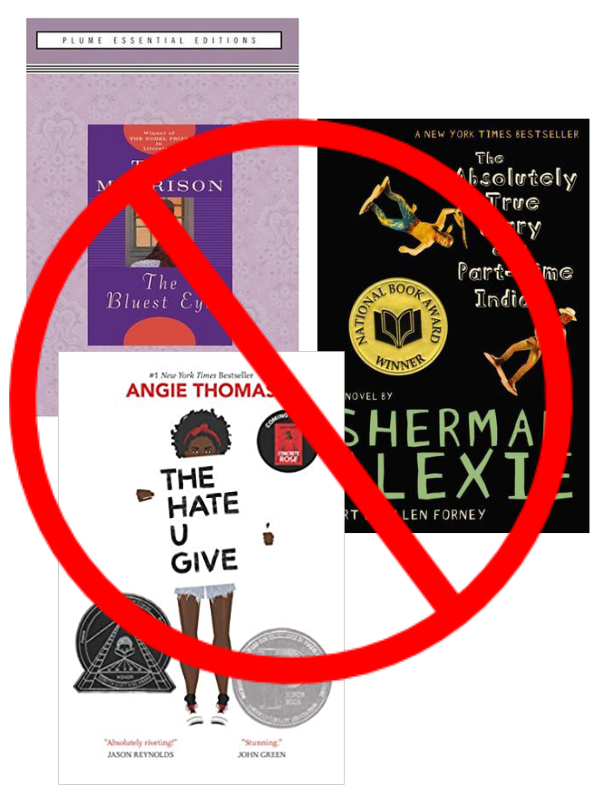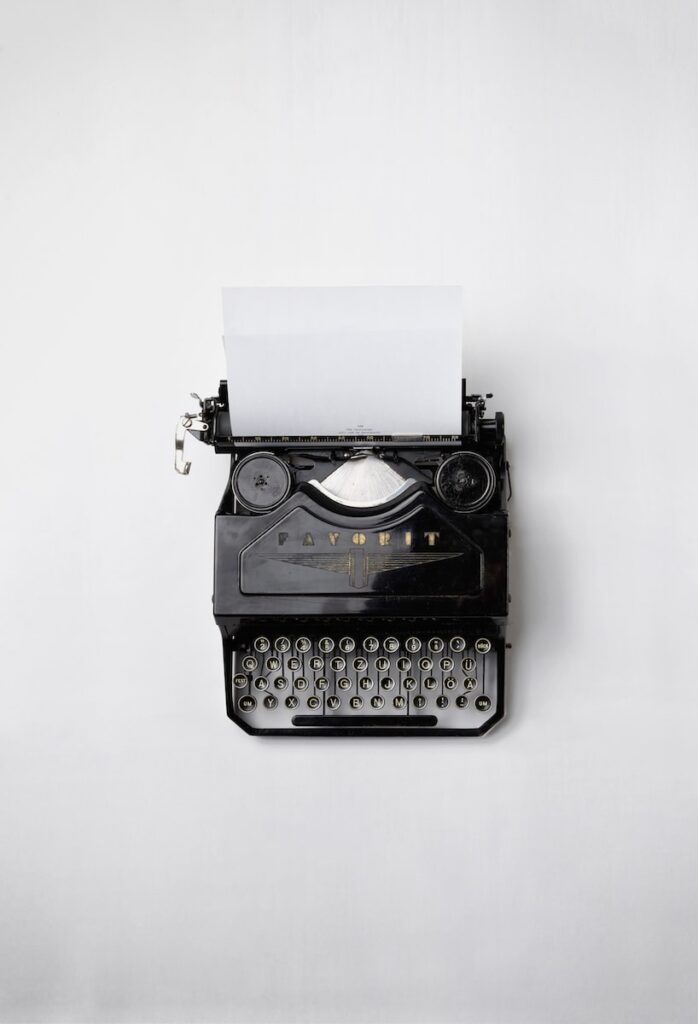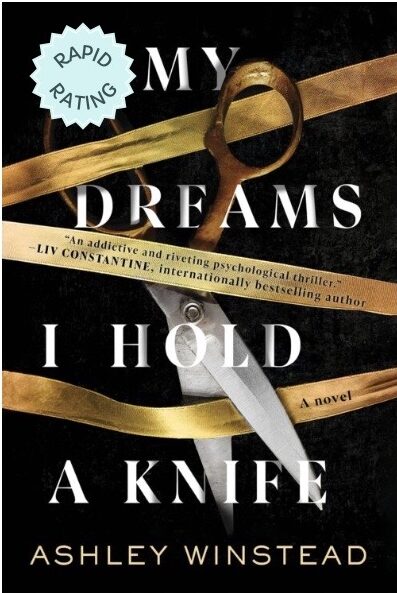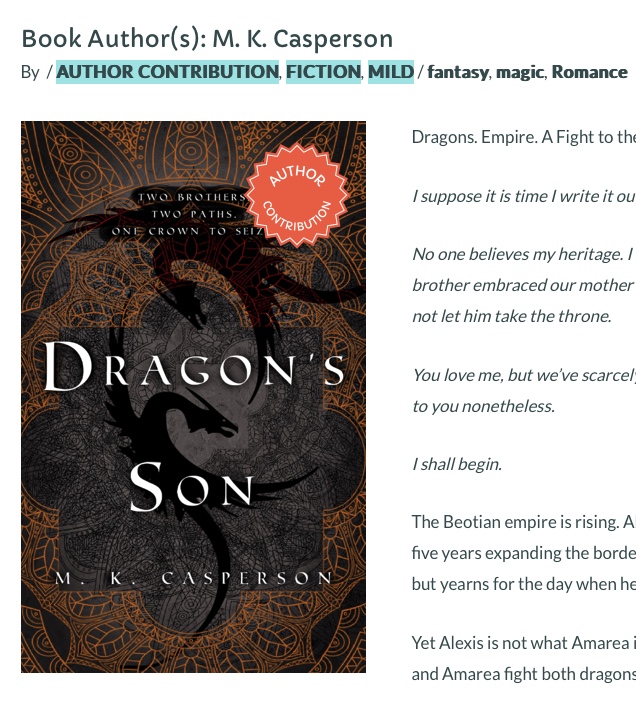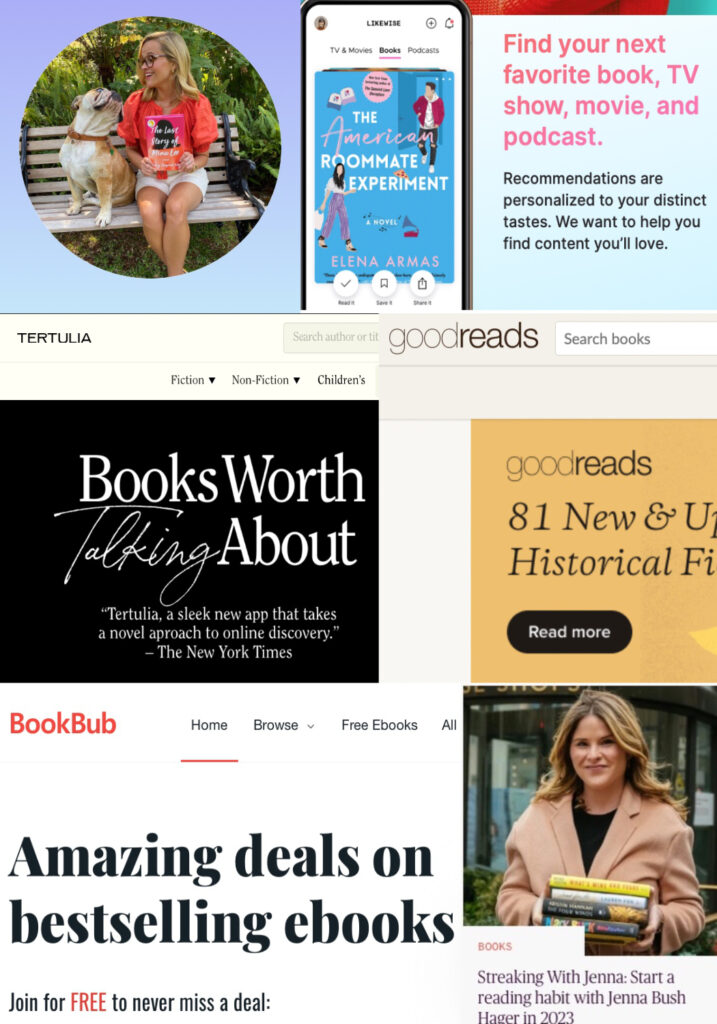I’ve been wanting to write about the thorny topic of book bans for some time now. First, I had to add a blog section to Rated Reads to do so! Next, I had to take the time from all my regular work on the site (and paid work, and work at home, etc.) to gather my thoughts and jot them down.
Book bans are nothing new, as you can see by doing a quick online search. They’ve been occurring for centuries. But what seems to happen is cycles where book banning occurs. The latest “cycle” has been going on for a couple of years. A number of factors have contributed to this latest one, but I think one big reason parents, communities and concerned groups have been active again is the Covid pandemic. When school went online and students were doing all their work at home in front of their parents, even the most involved parents got much more of a detailed idea of just what their kids were being taught.
I really don’t want to address my opinions on LGBTQ issues, critical race theory, and other complex, “hot” or contentious matters. While they play in to the reasons people are wanting to ban or limit access to books in schools or other libraries, discussion about those can take (and is taking) up millions of words in public discourse.
My concern here is the result of decisions made based on these and other hot-button issues. I can say that right now, I disagree with outright book bans and removals. In large part, it comes down to this: Who gets to make the decisions?
Thirty years ago, I earned a degree in journalism from Brigham Young University. I remember distinctly one message from my ethics class (and this is the version that’s been hanging around my brain and kicked around for decades, now chewed up and spit out): It’s all very good and well when public opinion and laws go your way, but you better believe there will come a time they won’t. If you choose to put a strict twist on something you feel strongly about and create a law or rule based on it, the “other side” will feel perfectly fine doing the same thing when they have the chance.
Obviously, I care a great deal about the content of books; indeed, any media. I believe that all of us, whether as direct consumers or as parents of the consumers, deserve to have as much information as possible about content so we can make an informed decision about what we will (or our kids will) consume. We have that information (in the form of ratings and a good number of news outlets and websites, for example) for movies, TV shows, video games and music. But we don’t have any formal ratings for books. I’m trying to fill that gap, but I can only do so much. (I’ll also leave the topic of petitioning for book ratings for another day.)
That being said, I believe information is power, and I don’t like using that power to force everyone to choose the same thing I do. I don’t want to limit everyone’s choices. Outright removing books from schools and libraries takes us down a dangerous path. (I would say, Well, obviously we should remove outright pornography and erotica from easy reach of young people. But I’m seeing a lot of books being removed from schools under the guise of being porn that, while I wouldn’t choose to read them, really do not qualify to be labeled as such. And, mind you, this statement is coming from a person who runs a website identifying this kind of content — And feels so strongly about it that she hasn’t made a dime from it.)
Rated Reads and other similar sites and services are available for parents (the intended audience in the case of book banning in schools) to find valuable information about content. However, I believe it’s still best practice to use that information to make choices regarding one’s own family. What may be the best balance of helping parents restrict some books for their own children but not make a unilateral choice based on their own standards for all children in a school is to have a system for them to be informed about what books their kids check out.
I know this solution doesn’t feel completely satisfying for some parents. But this is how democracy, how civil societies, function: no one is likely to feel completely happy about all laws and rules enacted. Rather, they are the best possible solutions that balance very different opinions, standards, and needs.
Meanwhile, I am here. I am doing all I can to expand content information on Rated Reads to as many books as I can. (The site don’t cover children’s books, but there are other excellent resources for those.) Information is power. Use it well.
